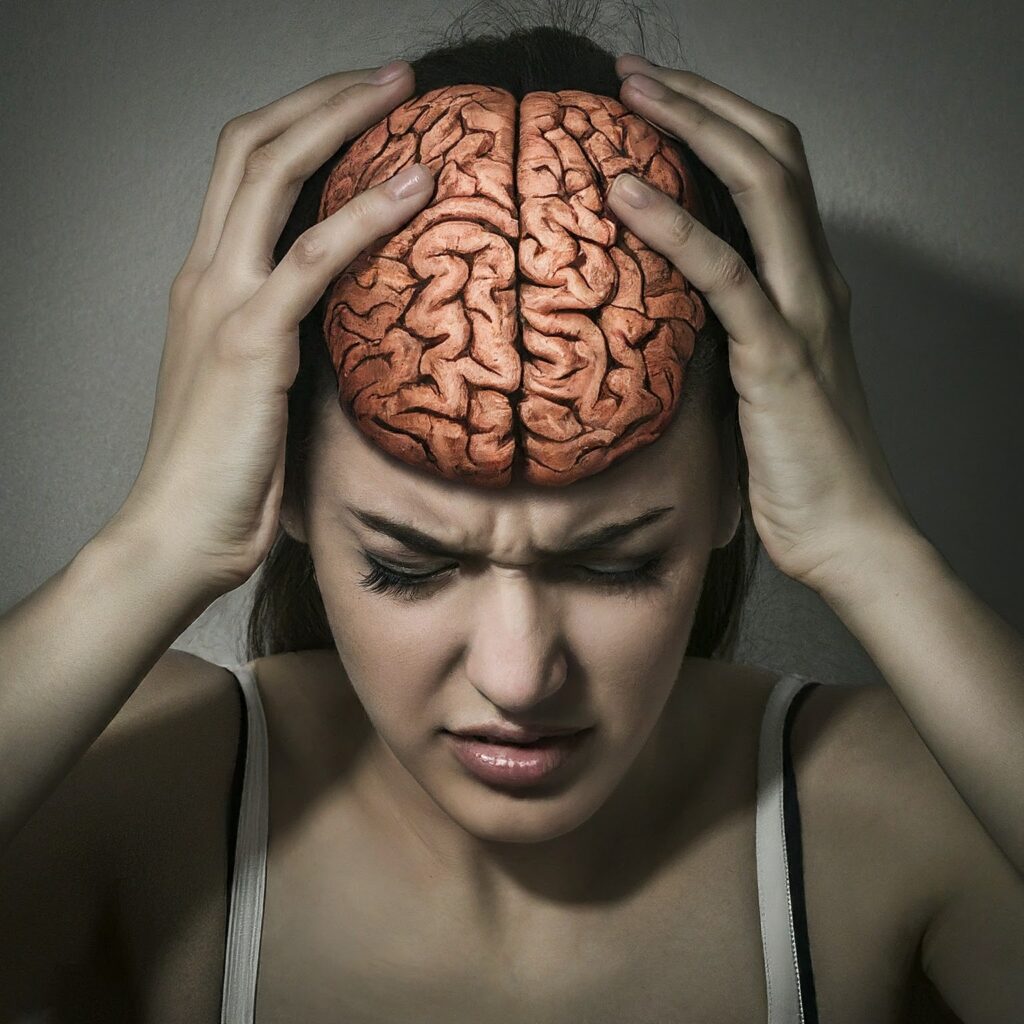What is Migraine causes ? Migraines are more than just headaches; they’re intense neurological storms that leave millions worldwide incapacitated. While the exact cause remains an enigma, scientists have pieced together clues pointing towards a complex interplay of genetic and environmental factors. migraine causes, exploring the potential culprits behind those attacks.
The Genetic Predisposition:
Imagine your genes as a blueprint for your body, and unfortunately, some blueprints have a built-in susceptibility to migraines. If you have a close relative with migraines, your chances of experiencing them yourself are significantly higher. This suggests a strong genetic component, with researchers identifying specific genes linked to migraines. However, like a recipe, genes simply set the stage; other factors are needed to trigger the full-blown migraine experience.
The Triggering Trio:
Think of triggers as the sparks that ignite the migraine bonfire. These can be broadly categorized into three main groups:
-
External Triggers: These are environmental factors that can set off an attack in susceptible individuals. Common culprits include:
- Stress: The emotional rollercoaster of life can be a major trigger, with work deadlines, financial worries, or relationship issues playing a role.
- Hormonal Fluctuations: Women are more prone to migraines, often experiencing them around their menstrual cycles due to fluctuating estrogen levels.
- Sensory Overload: Bright lights, loud noises, and strong smells can overwhelm the senses and trigger an attack.
- Dietary Culprits: Certain foods and drinks, like aged cheese, red wine, and artificial sweeteners, can act as triggers for some people.
- Sleep Disruptions: Irregular sleep patterns, jet lag, or even skipping a nap can throw off your internal balance and trigger a migraine.
- Internal Triggers: These are internal changes within your body that can contribute to a migraine attack:
- Dehydration: Not drinking enough fluids can lead to electrolyte imbalances, potentially triggering a migraine.
- Skipping Meals: Irregular eating habits, especially missing meals, can cause blood sugar fluctuations, a known migraine trigger.
Medications: Overuse of certain medications, such as pain relievers, can lead to rebound headaches, which can feel like migraines.
- Individual Triggers: These are unique to each person and require careful self-observation to identify. They can be anything from specific exercises to weather changes or certain scents.
The Brain at Play:
While triggers spark the fire, the actual migraine attack involves complex changes within the brain. Researchers believe it might start with abnormal nerve cell activity in certain regions, leading to the release of inflammatory chemicals. These chemicals then cause blood vessels to constrict and dilate, triggering the throbbing pain, nausea, and other symptoms associated with migraines.
Migraines: Battling the Beast with Big and Small Remedies
Migraines, those pulsing tormentors, can turn a bright day into a dark cave. But fear not, fellow sufferer! While there’s no magic bullet, there are many remedies, big and small, to help you find relief and reclaim your day.
Big Guns: When the Migraine Monster Attacks
- Medications: Talk to your doctor about prescription drugs specifically designed to combat migraines. Triptans are often the first line of defense, while other options like preventives can help reduce the frequency and severity of attacks.
- Darkness and Quiet: Find your inner caveman (or cavewoman) and retreat to a dark, quiet room. Light and noise sensitivity are common migraine triggers, so minimize external stimuli to give your head some peace.
- Cool Compress: Grab an ice pack or a bag of frozen veggies (wrapped in a towel, of course!) and apply it to your forehead or neck. The coolness helps numb the pain and reduce inflammation.
- Ginger Power: This wonder spice has anti-inflammatory properties that might ease migraine pain. Try sipping ginger tea, chewing on crystallized ginger, or even adding it to your meals.

Small Soldiers: Everyday Strategies for Migraine Management
- Hydration Hero: Dehydration can be a migraine trigger, so keep a water bottle handy and sip throughout the day. Aim for eight glasses, but listen to your body’s needs.
- Sleep Soldier: Aim for a consistent sleep schedule, even on weekends. Disrupted sleep can worsen migraines, so prioritize a good night’s rest.
- Trigger Tracker: Become a detective! Identify your migraine triggers, like certain foods, stress, or hormonal changes. Avoiding them can significantly reduce attacks.
- Relaxation Rituals: Stress is a notorious migraine instigator. Try deep breathing exercises, meditation, yoga, or progressive muscle relaxation to melt away tension.
- Acupressure: This ancient technique applies pressure to specific points on your body. While research is ongoing, some people find it helpful for pain relief.
- Essential Oil Oasis: Lavender and peppermint essential oils are known for their calming properties. Diffuse them in the air, dilute them in a carrier oil for topical application (avoiding the eyes!), or inhale directly (with caution).

Greetings, I am Adit Sharma, a professional writer and content creator driven by passion. As the Founder of newsstream247.com, I am dedicated to exploring the diverse facts of the human experience through my writing.

